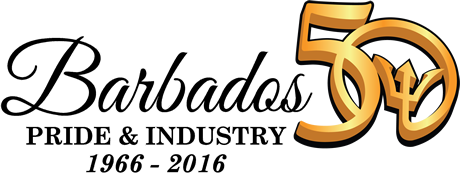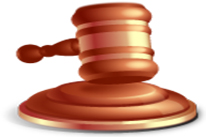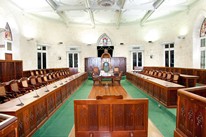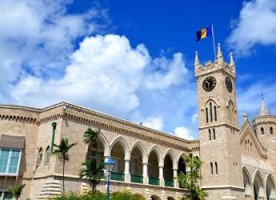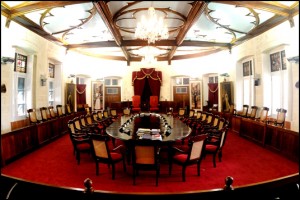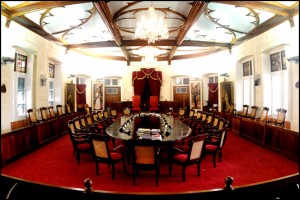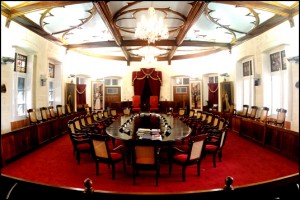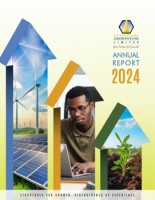The Constitution of Parliament
Barbados is a leading parliamentary democracy and was once a constitutional monarchy, following the Westminster model of government.
Barbados became a parliamentary republic with effect from November 30th, 2021. The country recognises Her Excellency the Most Honourable Dame Sandra Prunella Mason, FB, G.C.M.G, D.A., S.C., LL.D. as Head of State under the title of “The President of Barbados” also known as “Her Excellency the President”. She was also the last Governor-General of Barbados before becoming a Republic.
The country has a bicameral legislature and a mature social democratic party system, based on universal adult suffrage and total purity in elections.
The Senate has 21 members, all appointed by Her Excellency the President, 12 on the advice of the Prime Minister, two on the advice of the Leader of the Opposition, and seven at the President’s discretion. The House of Assembly has 30 members, all elected. Both Houses debate all legislation. However, the House of Assembly may ultimately override the Senate's rejection of money Bills and other Bills except Bills amending the Constitution. The House of Assembly sits for about 40 - 45 days a year and the Senate 20 - 25 days.
Officers
Officers of each House (President and Deputy President of the Senate and Speaker, Deputy Speaker and Chairman of Committees of the Assembly) are elected from the Members of the respective Houses.
The Cabinet
The Cabinet is headed by the Prime Minister who must be an elected MP and other Ministers are appointed from either House by Her Excellency the President as advised by the Prime Minister.
The President
The President appoints as Leader of the Opposition the Member of House of Assembly who commands the support of the largest number of Members of that House in opposition to the government. The maximum duration of a Parliament is five years. There is a simultaneous dissolution of both Houses of Parliament by the President acting on the advice of the Prime Minister.
The Constitution
The Constitution may be amended by Act of Parliament. Amendments to entrenched clauses require the support of 2/3 of all the members of each House.
Since Independence, the Barbados Labour Party held office from 1976 to 1986 and has formed the Government since September 1994.
The Democratic Labour Party governed from 1966 to 1976 and from 1986 to 1994.
Control of the government was regained in 2008 by the Democratic Labour Party for 10 years.
Most recently, in 2018, the Barbados Labour Party swept government in an unprecedented 30-0 victory against the Democratic Labour Party.
Again, in January 2022 the Barbados Labour Party won the general election with a second 30-0 victory, after the dissolution of Parliament in December 2021.
Fundamental Rights and Freedoms of the individual are set out in the Constitution and are protected by a strict legal code.
There is an established non-political public service.
Also, there are separate constitutional commissions for:-
* the Judicial and Legal Service
* the Public Service
* the Police Service
A Constitution Review Commission (1996-98) has reported on its review of the Constitution and its institutions. The Commission has recommended the adoption of a fully republican Constitution with a Barbadian, to be styled President, as non-Executive Head of State. The full recommendations of the commission are published on Government's Website.

